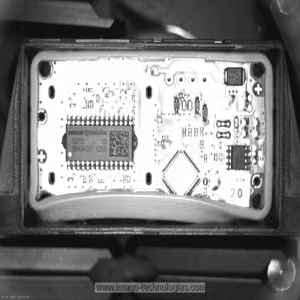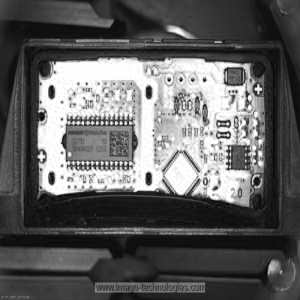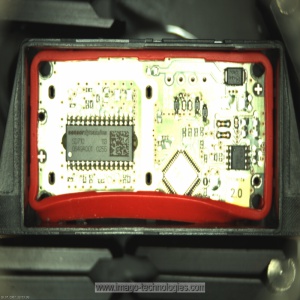You are here: Start » Filter Reference » Image Conversions » MergeChannels
Creates a multichannel image from several monochromatic ones.
| Name | Type | Description | |
|---|---|---|---|
 |
inMonoImage1 | Image | An image that becomes the first channel |
 |
inMonoImage2 | Image | An image that becomes the second channel |
 |
inMonoImage3 | Image* | An image that becomes the third channel |
 |
inMonoImage4 | Image* | An image that becomes the fourth channel |
 |
outImage | Image | Output image |
Only the following inMonoImage1 pixel formats are supported: 1xuint8, 1xint8, 1xuint16, 1xint16, 1xint32, 1xreal
Only the following inMonoImage2 pixel formats are supported: 1xuint8, 1xint8, 1xuint16, 1xint16, 1xint32, 1xreal
Description
The operation combines the given monochromatic images to obtain a color image, each of its channels equal to the only channel of the corresponding input image.
Examples
 An example image used as inMonoImage1. |
 An example image used as inMonoImage2. |
 An example image used as inMonoImage3. |
 The resulting outImage. |
Hardware Acceleration
This operation supports automatic parallelization for multicore and multiprocessor systems.
Errors
This filter can throw an exception to report error. Read how to deal with errors here: Error Handling
| Error type | Description |
|---|---|
| DomainError | Image sizes are not equal in MergeChannels. |
| DomainError | Input image is not monochromatic in MergeChannels. |
| DomainError | Pixel types of the input images are not the same in MergeChannels. |
Complexity Level
This filter is available on Basic Complexity Level.


